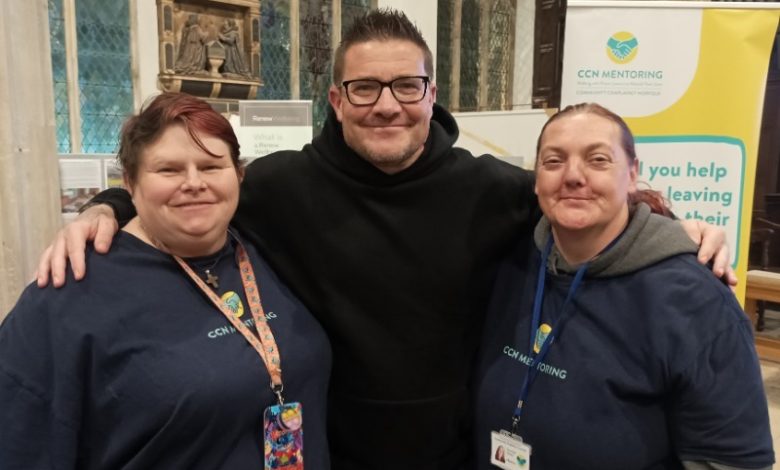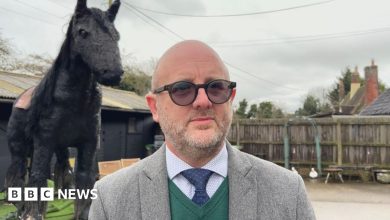Christian charity helps prison leavers rebuild lives

Finding Hope After Prison: How Community Chaplaincy Norfolk Changes Lives
In the heart of Norfolk, a Christian charity is quietly transforming lives by offering support to those leaving prison, regardless of their faith background. Community Chaplaincy Norfolk (CCN) stands as a beacon of hope for individuals seeking rehabilitation through mentorship and community support. At CCN’s Annual Meeting held at St Stephen’s Church on November 6, two former prisoners, Simon and Frank, courageously shared their journeys with supporters, staff, trustees, and volunteer mentors. Their stories, though beginning from opposite ends of the spectrum—Simon from a loving family environment and Frank from a childhood marked by poverty and neglect—converge in their experience of incarceration and subsequent transformation through CCN’s mentorship program. The charity’s approach is both personal and practical: mentors first meet clients while they’re still serving time, welcome them at the prison gates upon release, and provide ongoing support with essential life skills like budgeting, housing assistance, and perhaps most importantly, human connection during a vulnerable transition.
Simon’s story reveals how even those with seemingly perfect lives can harbor invisible trauma. Growing up in what he described as a “fantastic childhood” followed by success as a shop manager and family man, Simon concealed a devastating secret: sexual abuse he suffered at age nine by his best friend’s father. This unaddressed trauma led him down a path of substance abuse as he attempted to numb his pain while maintaining a facade of normality. “My life was a lie,” Simon confessed, revealing that he had even attempted suicide. When he finally disclosed the abuse in 2015, the subsequent court case forced him to relive his trauma, causing his mental health to deteriorate dramatically. After experiencing hallucinations and feeling unsafe, Simon felt so desperate for help that he intentionally committed a crime to secure prison time. Ironically, prison became his salvation: “Prison changed my life. I got the help I needed. I was diagnosed and medicated.” However, the transition back to society proved challenging until CCN stepped in. His two mentors provided the consistent support that had been lacking in his previous encounters with the mental health system. “For so long I was let down by the mental health system,” Simon reflected. “CCN doesn’t let you down.”
Frank’s journey began in stark contrast to Simon’s, with childhood memories of foraging for food and shoplifting by age seven just to survive. His father, struggling with alcoholism, placed him in care when police fines for Frank’s behavior began affecting his drinking money. Frank described his years in care between ages 13 and 18 as “traumatic,” leading him deeper into criminal activity, detention centers, and gang culture. His path ultimately resulted in a life sentence for murder, keeping him imprisoned for thirty years. Yet within those prison walls, Frank experienced what he describes as a profound spiritual awakening. “I saw the light,” Frank explained of his experience on January 6, 2013. “I wasn’t who I thought I was… Everything fell from me. I was born again and my consciousness expanded. I know my sins are forgiven.” Despite this internal transformation, the practical challenges of reintegration remained overwhelming for someone who had been institutionalized for decades. Frank found himself bewildered by the most ordinary aspects of daily life—from the movement of pedestrians on busy streets to the speed and noise of traffic. CCN provided him with a mentor who helped navigate these challenges, while the Christian charity Hope Into Action secured him accommodation. Having known only criminals throughout his previous life, Frank’s newfound church community became an essential support system in his rehabilitation journey.
The success stories of Simon and Frank highlight the critical role that specialized support plays in breaking the cycle of reoffending. Prison release represents a precarious time when individuals face numerous practical obstacles—securing housing, managing finances, finding employment—all while potentially dealing with unresolved trauma, addiction issues, or mental health conditions. CCN’s approach acknowledges this complexity by providing personalized mentorship that addresses both practical needs and emotional well-being. The relationship between mentor and client begins before release, establishing trust during a period of significant anxiety, and continues seamlessly into community life. This continuity of care helps bridge the often treacherous gap between institutional living and independence. For Simon, whose mental health had been neglected by formal systems, his mentors represented reliability in a world that had repeatedly disappointed him. For Frank, who had spent most of his life either in care or prison, his mentor provided a guide to navigate an unfamiliar world of technology, social norms, and everyday interactions that most take for granted.
The transformative impact of CCN’s work extends beyond individual clients to strengthen the broader community. By reducing reoffending rates, the charity contributes to safer neighborhoods while demonstrating the power of restorative approaches to criminal justice. The volunteer mentors—21 individuals who collectively contributed 1,000 hours in the past year alone—represent a community investment in second chances. Their willingness to walk alongside former prisoners during reintegration challenges societal stigmas and offers practical examples of compassion in action. The organization’s inclusive approach, serving people “of all faiths and none,” emphasizes human dignity above all else. For individuals like Frank, whose spiritual awakening became central to his rehabilitation, CCN provides space for faith to play a role in recovery without imposing it. For others, like Simon, the consistent practical support addresses needs that traditional systems had failed to meet. This holistic approach recognizes that successful rehabilitation requires addressing multiple dimensions of human experience—practical, emotional, social, and sometimes spiritual.
Looking ahead, CCN’s manager Abby Erwin remains optimistic about the organization’s future, though financial support continues to be a priority. The charity has made significant impact in the past year, supporting 60 individuals and training ten new mentors to join their dedicated volunteer team. With funding secured for immediate operations, CCN has set its sights on expanding services to West Norfolk, with mentor training scheduled in King’s Lynn for March 2026. This geographic expansion will allow the organization to reach more individuals at a critical juncture in their lives, potentially preventing reoffending and supporting successful community reintegration. The stories of Simon and Frank stand as powerful testaments to the possibility of transformation when vulnerable individuals receive appropriate support. Their journeys from prison cells to community participation demonstrate that with the right intervention at the right time, people can overcome even the most challenging circumstances. As CCN continues its vital work, each mentor relationship represents not just practical assistance but also a fundamental belief in human capacity for change—a message that resonates far beyond the individuals directly involved in the program.








